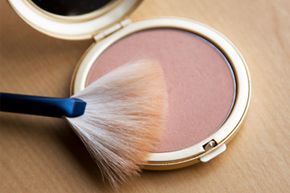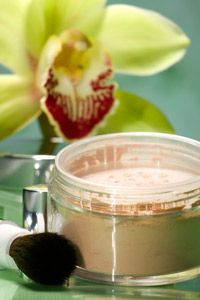The paradox of a suntan -- it makes you look healthier, but it's actually unhealthy for you. Few people can deny the appeal of a sun-kissed glow, but exposure to ultraviolet radiation from the sun can damage skin and cause skin cancer. Is it possible to have both worlds -- healthy skin and a healthy glow?
Indeed it is. Forgo the suntan and "fake bake" and head to the nearest beauty store, instead. An investment in a good bronzer can make you look like you've spent time in the sun even when you haven't.
Advertisement
Bronzers are powders, liquids, creams or gels that are applied to the skin to give the appearance of a suntan -- without the health problems [source: Jones]. They are available in a large number of brands and in a variety of shades. Makeup companies have improved bronzers in recent years making them easier to use and more natural looking.
Choosing new makeup products can be fun, but it can also be a source of anxiety if you're worried about throwing your money away on products that just aren't right for you. That's especially true for skin makeup products; selecting the right color and texture can make all the difference in the world. With so many available shades, a variety of textures and a multitude of brands, it's easy to see why some women pick the wrong bronzer. However, choosing the right one doesn't have to be time consuming or costly. You just need good beauty advice.
To learn how to find the right bronzer for your skin tone, keep reading.
Advertisement

